
A plucky town in Devon has made a stand against Brexit. Remainers in Totnes have declared their town an “independent city state.” They have even gone as far as making passports and writing an oath of allegiance to the EU. However, they admit that it is a bit of fun and don’t expect Totnes to be annexing itself from the rest of the UK, for real, any time soon. Dominic Raab has one less problem on his list to potentially worry about.
Organiser, barrister Jonathan Cooper, admitted is was for a laugh but also said: “there is a serious side to it. “There’s so much to be had from being a European citizen and we really don’t want to give up our European citizenship. We want to have access to Europe because we are part of Europe and Totnes in particular has its roots in Europe.”
Totnes is in the South Hams area of Devon which voted 52.9% to remain in the EU referendum in 2016.
Mayor Judy Westacott said: “People are always curious to see the quirky character of our town and if it brings in more people I am all for it. As long as it has no legal position then I have no problem with it.”
And as reported in the Independent:
How the 'Independent City State of Totnes' will start the reformation of Brexit Britain
Citizens of Devon town declare independence from UK in hope of staying in EU
The declaration of independence is affixed to the Guildhall building with all the moral force of Martin Luther nailing his 95 Theses to the church door at Wittenberg. But not the physical force. The Guildhall is Grade I listed, the door in question dates to the 17th century, and modern magistrates take a dim view of criminal damage.
“It’s more Blu Tacking than nailing,” explains the man doing the affixing, Jonathan Cooper, lawyer, thinker, visionary leader of the movement for an Independent City State of Totnes. Blu Tack does the job just as well as nails.
To the bemusement of a pair of passing American tourists, the declaration remains stuck to the Guildhall door, in the form of the “Totnes Oath”: “We affirm our allegiance to the European Union and promise to abide by and promote the universal values upon which it is based…”
Thus is revealed the document that will inspire not just an independent city state in what is currently a Devon town, but a veritable reformation of Brexit Britain. Totnes will become as a city upon a hill (above the River Dart); a shining example to all.
Other city states, says Mr Cooper, will start popping up all over Britain, all declaring independence from the UK, all insisting on their continued membership of the EU – and a second referendum. What Totnes has started, Plymouth will surely join and London will definitely imitate. Ulverston in Cumbria, says Mr Cooper, has already been in touch suggesting a similar venture and an alliance.
Although Mr Cooper does also hint that he might not be entirely serious about his bright idea. He may even be seeking to inject such long-forgotten virtues as “levity” and “wit” into “all this Brexit chaos and misery”.
This reformation, it seems, will be inspired less by the austere seriousness of Martin Luther and more by… um… Brutus of Troy, the last Duke of Burgundy and Passport to Pimlico.
All of which can and will be explained.
But first, let us pause to acknowledge, as everyone does, that this is a movement that could only be started in Totnes, a town of picturesque streets lined with independent shops, offering plenty of healing crystals but no Costa Coffee. (Local protest kept the brand out of the town in 2012.)
It’s been called “the capital of New-Age chic”, “the most eccentric town in Britain”, a source of inspiration for artists, writers and therapists, and a cause of rage for at least one visiting rationalist who fulminated against a hotbed of “drop-in Tarot and meditation classes, art healing workshops and psycho-spiritual dance sessions”.
And let us continue to pause, because the Totnes passports, which shall be issued to all who are willing to swear the Totnes Oath, are still at the printers. Someone spotted an error when they came off the press.
This is a pity because Marian and Barry Skeffington have turned up in the hope of becoming the first senior citizens to have their own Totnes passports.
Alerted by an early morning news item on Radio Devon, they hot-footed it to the Guildhall determined to be the first in the queue at the Totnes “passport office” (which in its current form is more bench than office).
“I want mine to have the number one on it,” says Barry, a retired hotel general manager. “I have such pride in Totnes.”
He and Marian are happy to wait. We have time to explain the roles of Brutus of Troy and Passport to Pimlico.
Mr Cooper, 55, invites us to consider the Brutus Stone in nearby Fore Street, and the writings of the monk Geoffrey of Monmouth in the far away 12th century. “The greatest European civilisation was, of course, the city state of Troy,” he begins.
Brutus, he explains, was the grandson of Aeneas, the Trojan hero forced to flee when his city fell to the perfidious Greeks: “The parallels between the Trojan horse and that Brexit battlebus[promising £350m a week for the NHS] should be obvious.”
According to Geoffrey of Monmouth, the wanderings of Brutus of Troy took him, after many adventures, to the River Dart, to a land inhabited only by abundant game and a small band of giants. Here Brutus stepped ashore and declared (while standing on the aforementioned stone): “Here I stand and here I rest, and this good town shall be called Totnes.” Brutus and his followers slew the giants, including their leader Gogmagog. And on this now happy shore they created the second Troy that in due course became the nation named Britain, after Brutus.
“We are the inheritors of Troy,” insists Mr Cooper, “and the marvellous thing about the EU is that it adopted our Trojan values (defined in the Totnes Oath as “compassion, endeavour, ingenuity, altruism, diligence, daring and a peace-loving commitment to the dignity of all sentient beings”).”
But now, says Mr Cooper, Britain wishes to depart from Europe and its Trojan values, so to stay true to its roots, Totnes must remain in the EU by declaring its independence from the UK.
And should Theresa May’s government refuse them their independence, the Totnesians will cite the precedent set by the 1949 film Passport to Pimlico, in which a plucky band of Londoners claimed to be in part of Burgundy, as granted by English King Edward IV to Duke Charles “The Rash”.
There will be issues to resolve, none more vexing than question asked by Conservative district council leader John Tucker: “Will there be a soft border with Newton Abbot?”
But Totnes is the town that slew the giants Gogmagog and Costa Coffee.
With right, legal precedent and the spirit of British film comedy on their side, declares Mr Cooper, “Totnes will become a leading entity within the EU. The City State of Totnes will very quickly become a very prosperous world leader.”
“How are we doing on the passports?” asks Barry hopefully. “Any word on the passports?”
They’re still at the printers.
In the Independent City State of Totnes, explains Mr Cooper, everyone will be listened to, not just the 37 per cent of the electorate who voted Leave (as opposed to backing Remain or abstaining). The town’s castle, adds his partner Kevin Childs, an art history lecturer, has the perfect circular shape for a people’s assembly. The Guildhall would become the headquarters of the executive.
The town’s Conservative MP – and GP – Dr Sarah Wollaston, who has already called for a second EU referendum, will, they hope, accept their invitation to become the provisional government’s interim first minister, “so Totnes will also have the best healthcare system in the EU”.
(When The Independent phoned, the woman in Dr Wollaston’s constituency office laughed. Then she said the MP was in meetings.)
The Totnes national anthem has yet to be composed, but will have “forward-looking” words. The city state’s flag has yet to be designed. They are also uncertain on whether to adopt the euro or keep the Totnes pound (a local currency started by an eco-charity in 2007).
But we know what the passports will look like because, hot off the adjusted presses, they have now arrived.
They are, of course, in EU red and incorporate the image of Brutus of Troy, plus watermarks depicting a carrot (for organic farming), a computer – conceived of by Totnesian Charles Babbage in 1837 – and three healing crystals (obviously). The Totnes Oath is printed on the back cover.
Clutching the first ever passports issued by the Independent City State of Totnes, Marian and Barry are delighted.
“This is fun,” says Barry. “But I’m not particularly hot either way on Brexit.”
Organic innkeeper Geetie Singh-Watson, next in the passport queue, is slightly more on message.
“I want to stay in the EU,” says Ms Singh-Watson, of the Bull Inn, who is accompanied by her springer spaniel Artichoke. “This does seem an opportunity to question how we got to this point after a referendum full of false statements. I swear allegiance to Europe. And so does Artichoke!”
There is similar enthusiasm on the high street, at Rhythm and Light (purveyor of “crystals, fossils, world music, instruments”).
“I like the idea,” says Rhythm and Light owner Sandi Whale, “because of what it shows up – the lies and skulduggery that got us to Brexit. It does rather highlight that the government is letting a right-wing cabal dictate to the rest of the country. Totnes is so different,” she adds. “You feel you can do anything here.”
But at Earth Food Love, Britain’s first zero-waste supermarket, a note of caution is sounded between the jars of organic puffed quinoa and the grind-your-own almond butter.
“It’s amusing,” says Edward Judge, 21, the man behind the counter. “But there are not as many radicals here as you might think.”
And if you really want to be over-serious, you could try quite a few objections to Mr Cooper’s City State of Totnes plan. For a start, Mr Cooper isn’t just any old lawyer. He is a human rights specialist with particular expertise in the EU Charter of Fundamental Rights. In Brexiteer demonology, that probably places Mr Cooper in first class on “the Brussels gravy train”, clutching a CV slightly worse than Satan’s.
Although Mr Cooper doesn’t see it that way.
“It is a fiction that lawyers get rich by exploiting EU human rights law,” he says. “In fact, if Britain left the EU, I would be richer, because there would be so many complications flowing from Brexit that I would get much more work. The overwhelming majority of human rights barristers do large amounts of pro bono work,” he adds, “because we represent people who are not wealthy, but who genuinely need legal protection.”
The so-called Thatcherite economic miracle, he suggests, was more of an EU miracle resulting from Britain joining a single market now populated by 500 million people: “It only became controversial when they realised they couldn’t have the business model without the social justice model and protections for workers.”
But enough about Mr Cooper. What about Geoffrey of Monmouth? He didn’t just invent Brutus of Troy. He promoted the myth of King Arthur. Geoffrey of Monmouth could plausibly be described as more fake news than Boris of Battlebus.
Mr Cooper bristles, albeit not altogether seriously.
“Where do we get the name Britain, if not from Brutus? If they are going to stoop to the level of challenging Geoffrey of Monmouth … We have got the Brutus Stone. What more evidence do you need?”
It is with some hesitation that The Independent reminds Mr Cooper that the town’s reputation for “crystal waving” – as one jaded local put it – has spawned the oft-repeated joke that Totnes is twinned with Narnia.
“The only fantasy land is Brexit,” insists Mr Cooper.
Totnes is twinned with Vire, France. Not Narnia. It is accessed via the A38, not a wardrobe.
Yet it has to be said that the key problem in establishing the Independent City State of Totnes may prove to be the independent minds of the citizens of Totnes.
Visit for example, the fully immersive art installation that is Totnes’s internationally acclaimed Timehouse. Lie on the “flying carpet” in the Cloud Nine room while watching a projection of Plan 9 from Outer Space.
Then listen to Timehouse owner and creator Julie Lafferty.
“It is fun to have an independent city state,” she says. “When we first created the Timehouse, I wanted to declare this slice of land the Territory of Aeons. But when it comes to Brexit, I’m neutral. I think of myself as Switzerland.”
There is even more individuality back on the high street, in the heavily bearded form of Sky, a 41-year-old “gravedigger and one-to-one enabler in mental health”.
Leave, Remain, EU, UK, Independent City State of Totnes: whichever political form you choose, to Sky you are just “deciding what shape you want your chocolate teapot”.
The whole debate, he suggests, is a diversion: “It’s all couched in capital, and anything couched in capital is slave to the banks.”
But the faith of Mr Cooper remains unshakeable.
“In Totnes,” he says, “Over the millennia [since Brutus of Troy arrived], the right thing has always happened. Ultimately, even if we must go through some terrible lesson around Brexit, the right thing will happen again.
“And Totnes will be leading the way.”
How the 'Independent City State of Totnes' will start the reformation of Brexit Britain | The Independent
.
.
.

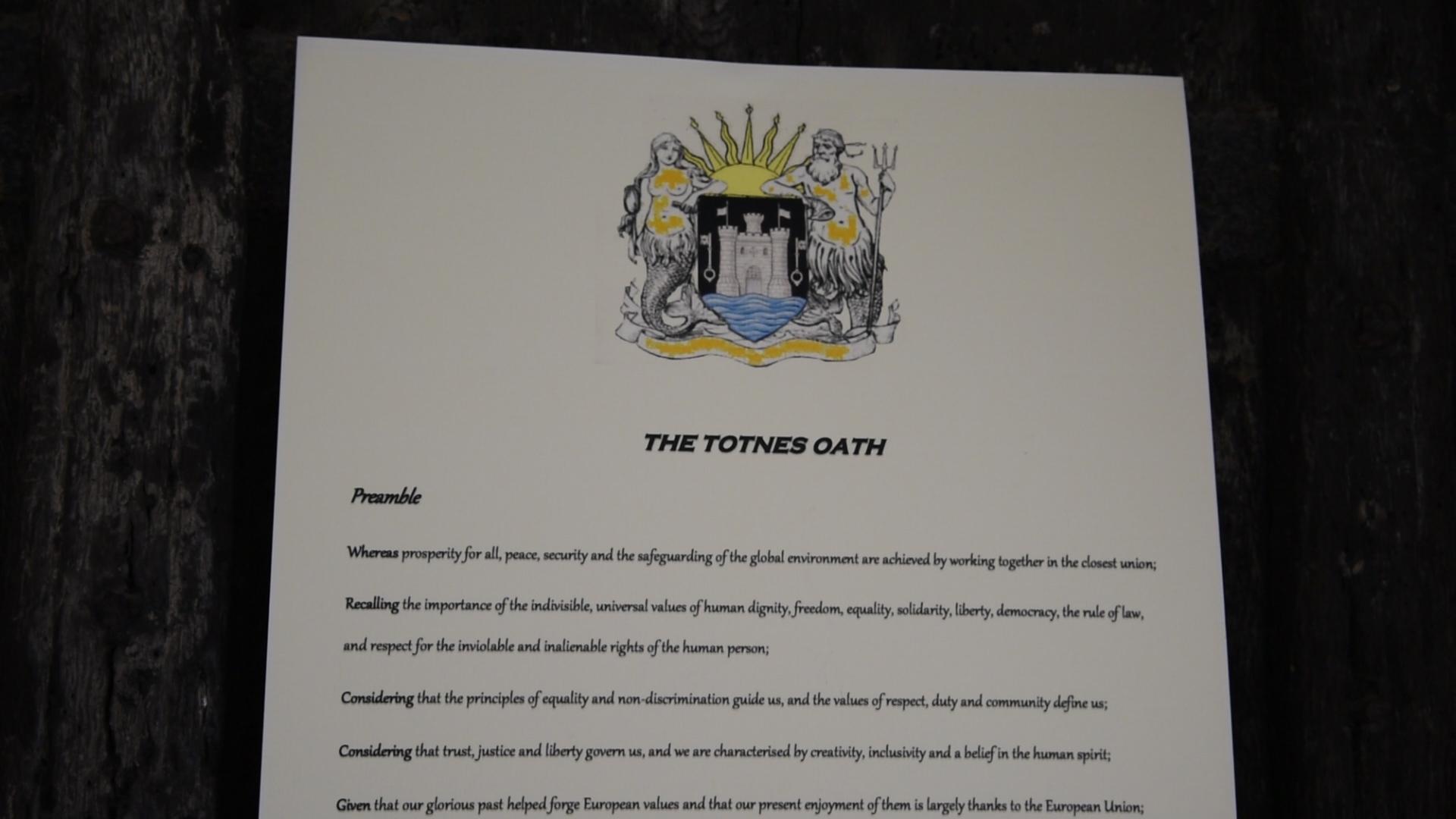
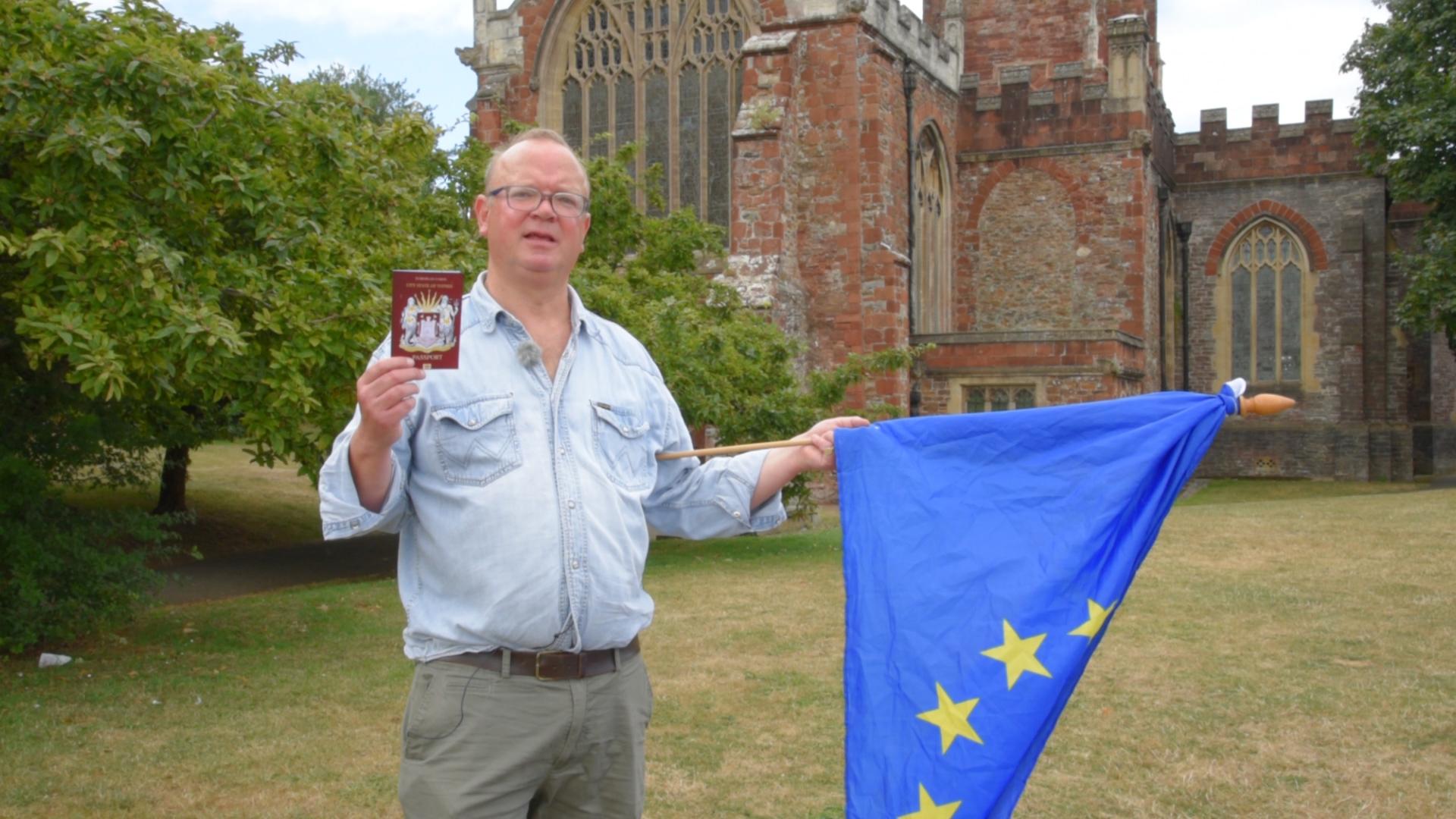
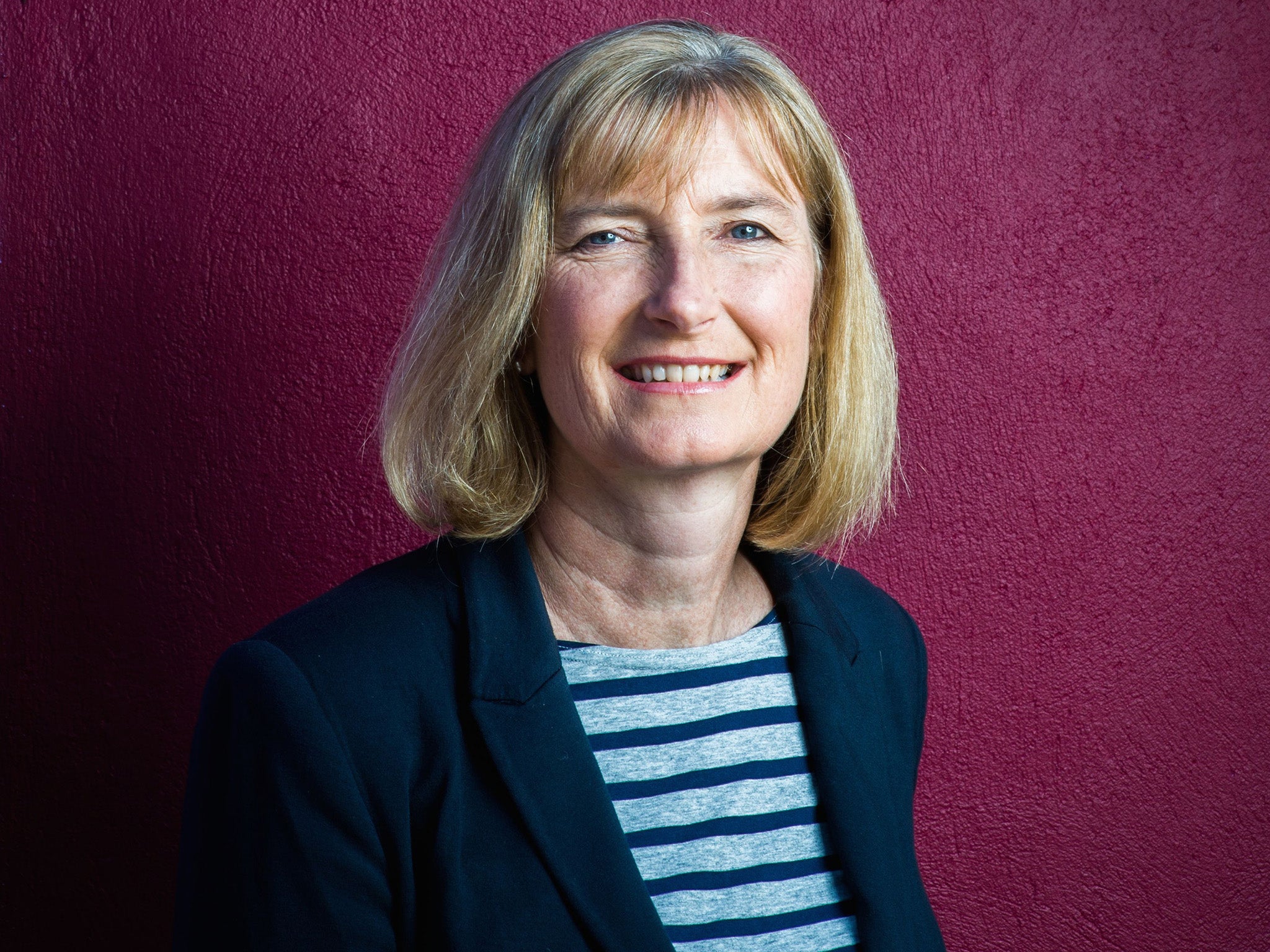
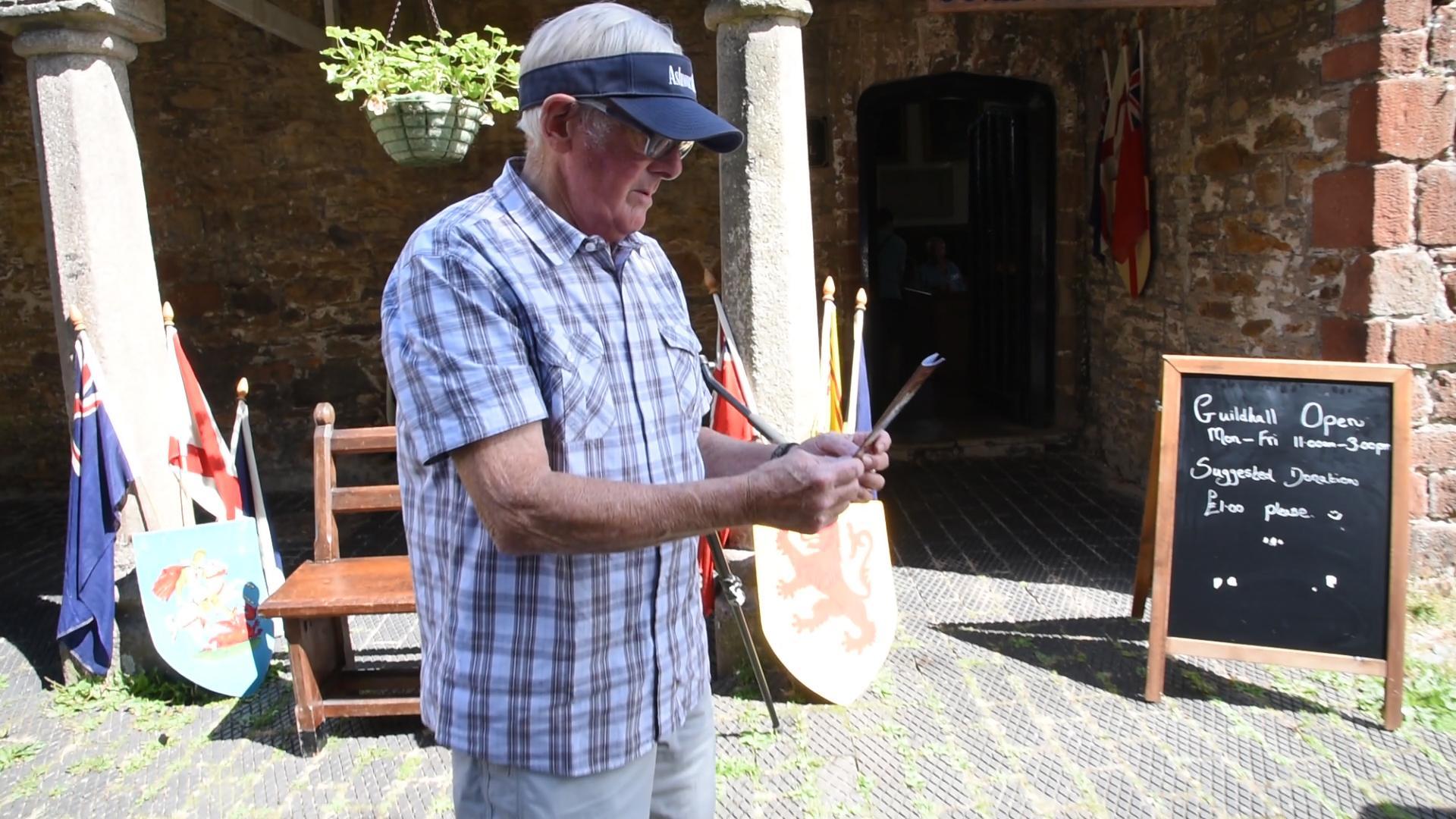
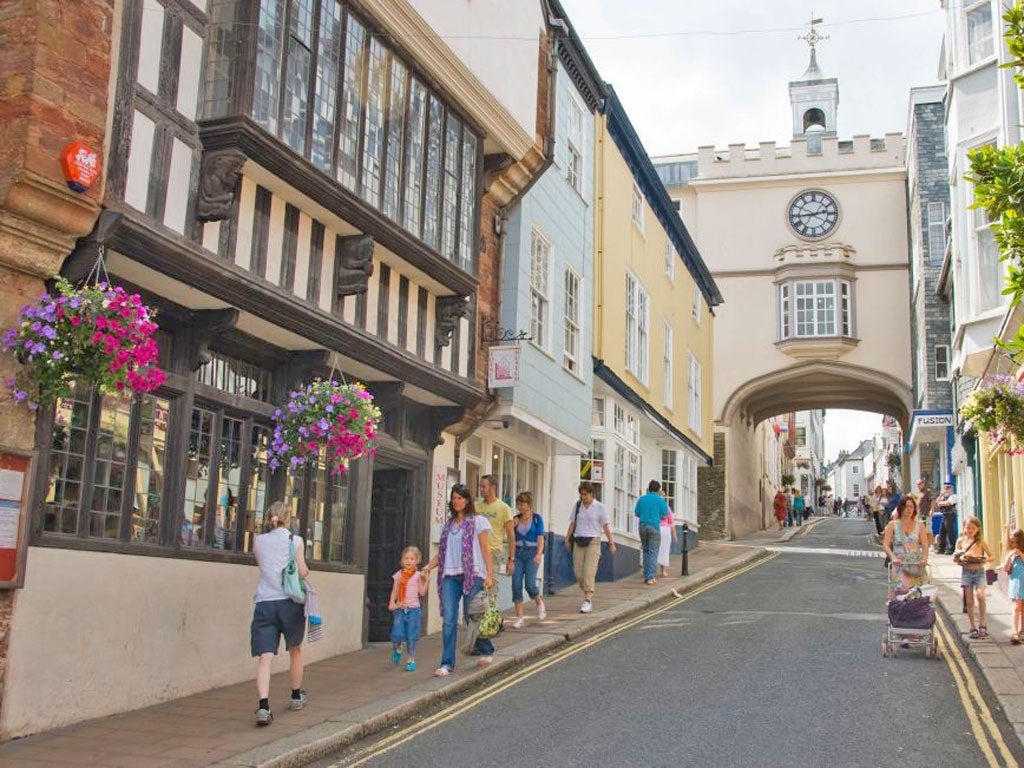
No comments:
Post a Comment